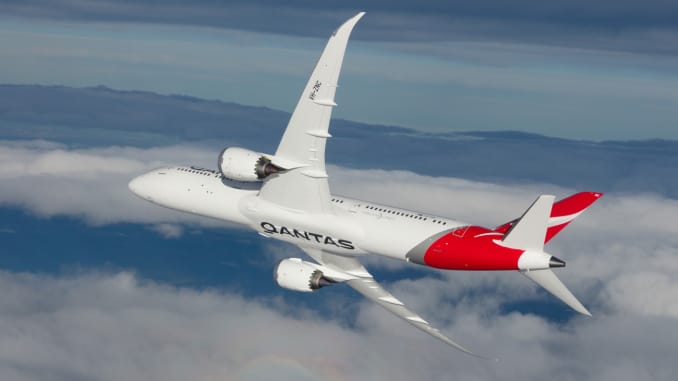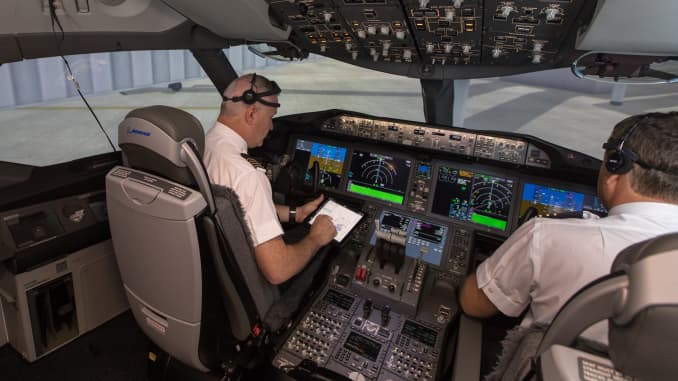Heading East in a Hurry
"Jet lag is more than just an inconvenience. It's pretty devastating physiologically."
"If you're a constant traveller, you'll probably put on more weight, you'll probably have cardiovascular challenges and you may have some behavioural changes."
Carrie Partch, biochemist associate professor, University of California Santa Cruz
"We know ultra long-haul flights pose some extra challenges but that's been true every time technology has allowed us to fly farther."
"The research we're doing should give us better strategies for improving comfort and well-being along the way."
"After 19 hours on this flight, I think we've gotten this right. It feels like we've been on a flight a lot shorter than that."
Alan Joyce, Qantas chief executive
 |
The International Air Transport Association has forecast that before the end of 2019, 4.6 billion people will have taken flight to somewhere from somewhere, on some airline. They also anticipate that by 2037 that number will almost double to 8.2 billion, the staggering impact on the environment notwithstanding. Among those who take long-distance flights and many do, there is the issue of jet-lag. In fact, therapies to counteract jet-lag are in growing demand by an estimated 6 percent annually making that particular industry worth by 2023, $732 million.
According to Global-Data, over 80 drugs meant to ameliorate the problem of disturbed sleep are currently in clinical development, to add to those already on the market. What's jet-lag? You know it when you feel it, after crossing three time zones fairly quickly flying through the air at jet-speed, the result being the body's internal clock is still set to its home timetable. It's that feeling of exhaustion when you arrive at your destination followed by insomnia later that night. That's jet-lag.
And if you're a constant traveller, your body becomes truly confused and you feel like death warmed over.
Travelling eastward reverses the familiar normalcy of the body's day-and-night cycle, so the outcome of west to east is more pronounced than the opposite. Sound complicated? It's more complex than you may know, given that each of the billions of cells in the human body has its particular clock. Think heart function, food absorption, metabolism, all those organs disrupted.
 |
Scientists won a Nobel Prize in 2017 for their discovery that molecular mechanisms control circadian rhythms. The hope that a laboratory rodent can respond to medication to speed its internal clock adjustment, does not, unfortunately, translate to the formulation of a fast-acting pill that frequent flyers can use to help get over that notorious jet-lag. There are certain remedies such as exercise and whole food (not the usual in-flight fare) to help synchronize the body's adjustment to a new time zone.
A University of Boulder Colorado study in 2017 indicated that body-clock adjustment can be rapidly reached through exposure to natural light. Qantas Airways Ltd. this past Friday launched an experimental flight of 19 hours without stop -- the first such lengthy flight to have been attempted, with more to follow -- New York to Sydney, called Project Sunrise.
 |
Qantas is testing a Boeing 787-9 New York to Sydney nonstop.
Source: Qantas
|
Not only time zones create the misery of feeling jet-lagged; also involved is poor-quality sleep, and the dry pressurized cabin air. "I've seen people disoriented a week after a flight", commented Conrad Moreira, medical director at the Travel Doctor-TM-VC clinic in Sydney, who prescribes a range of sleep-inducing drugs; anxious flyers included. These are tablets that contain melatonin, produced naturally in the body in sleep promotion.
The travel industry in general is anxious to find a solution to the extreme disorientation and discomfort that accompanies long-range flights, not just for passengers but for their own staff. IATA's latest fatigue-management manual indicates that some cabin crew may spend close to 21 hours awake on the day of a long-haul flight, despite an official duty period shorter than ten hours.
It is expected that data coming out of this first, experimental non-stop flight halfway around the world will render new and useful data, since scientists and medical researchers were meant to be present in the cabin, making a high-altitude laboratory out of Qantas's new Boeing Co. Dreamliner. During flight hours the scientists will have screened the pilots' brains for alertness, as well as monitoring food, sleep and activity of the fifty passengers on board.
 |
Pilots will wear brain monitors during the nearly 20-hour flight.
Source: Qantas
|
Labels: Airlines, Experiment, Jet-Lag, Research, Travel

0 Comments:
Post a Comment
<< Home